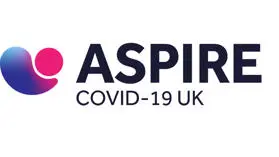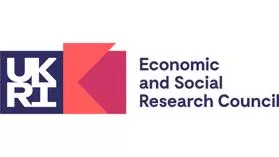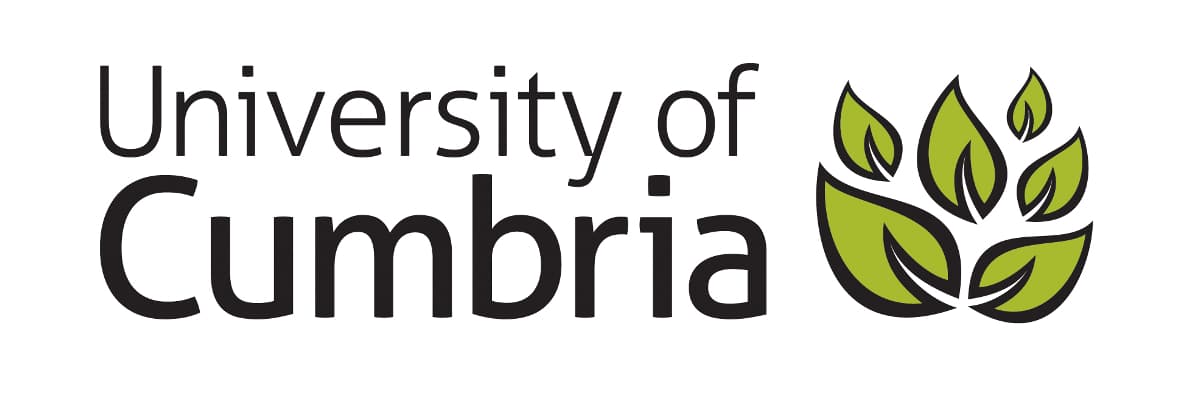As the COVID-19 pandemic became a reality in the UK and across Europe, it was clear that healthcare provision would have to be adapted according to the developing situation and that this would differ according to variation in infection rates and resources, but also according to local contextual factors such as organisational culture, which would influence the direction and course of change.
UK policy is for safe, personalised maternity and neonatal care. However, considerable changes were made to the provision of maternity and neonatal care over the pandemic, which impacted to varying degrees on the provision of safe and personalised care.
ASPIRE COVID-19
Achieving Safe and Personalised maternity care In Response to Epidemics (ASPIRE)
SUPPORTED BY



Read More
Project Collaborators (Co-Is)
- Professor Soo Downe, UCLan
- Professor George Ellison (UCLan)
- Professor Gill Thomson (UCLan)
- Dr Anastasia Topalidou (UCLan)
- Professor Ank de Jonge, Amsterdam University Medical Centre
- Dr Alan Charles Fenton, Newcastle Upon Tyne Hospital NHS Foundation Trust
- Professor Alexander Heazell, University of Manchester
- Dr Carol Kingdon (Wirral University Teaching Hospital NHS Foundation Trust)
- Professor Zoe Matthews, University of Southampton
- Dr Sarah Neal, University of Southampton
- Alexandra Severns, NHS England and NHS Improvement North West
- Dr Alison Wright, Royal Free Teaching Hospital
Research Team
- Marie-Clare Balaam, University of Central Lancashire
- Dr Nicola Crossland, University of Central Lancashire
- Sarah Cordey, University of Central Lancashire
- Jo Cull
- Dr Claire Feeley, University of Central Lancashire
- Lara McNally, University of Central Lancashire
- Gill Moncrieff
- Dr Rebecca Nowland, University of Central Lancashire
- Debs Powney, University of Central Lancashire
- Arni Sarin
- Eleanor Smith, University of Central Lancashire
- Naseerah Akooji, University of Central Lancashire
- Beata Franso, Amsterdam University Medical Centre
- Steph Heys
- Lucy Stone, University of Southampton
- Lauri van den Berg, Amsterdam University Medical Centre
Advisory Group
- Rebecca Abe and Tinuke Awe, FivexMore
- Toyin Adeyinka, MVP BAME Group
- Ruth Bender-Atik, The Miscarriage Association
- Lia Brigante, RCM
- Rebecca Brione, Birthrights
- Franka Cadée, International Confederation of Midwives (ICM)
- Elizabeth Duff, Expert in postnatal care
- Tim Draycott, Royal College of Obstetricians and Gynaecologists (RCOG)
- Duncan Fisher, Fathers included/Family included/the Family Initiative
- Annie Francis, Neighbourhood Midwives
- Arie Franx, Erasmus MC
- Lucy Frith, University of Liverpool
- Louise Griew, National Maternity Voices
- Clea Harmer, SANDS
- Caroline Homer, Burnet Institute; Australia
- Marian Knight, National Perinatal Epidemiology Unit (NPEU)
- Amali Lokugamage, University College London
- Amanda Mansfield, London Ambulance Service Trust
- Neil Marlow, University College London
- Trixie Mcaree, NHS England
- David Monteith, Grace in Action
- Keith Reed, Twins Trust
- Yana Richens, UCL & City University
- Lucia Rocca-Ihenacho, Midwifery Unit Network
- Mary Ross-Davie, RCM Scotland
- Seana Talbot, BirthWise NI
- Myles Taylor, British Maternal and Fetal Medicine Society
- Maureen Treadwell, Birth Trauma Association
Steering Group
- Maria Booker, Birthrights
- Tisian Lynskey-Wilkie, University of Central Lancashire
- Jane Sandall, Kings College London
- Jim Thornton (chair), The University of Nottingham
- Vanessa Wilson, East Lancashire Hospitals NHS Trust
Background information
The project included the analysis of national organisational and Trust-level guidance/social media as it was produced over the pandemic; interviews with service users, staff and national organisation representatives; analysis of routinely collected clinical data for key maternal and neonatal outcomes; and analysis of data from the Babies Born Better survey.
Read More
Seven Trusts across England were purposively selected for variation, for example, in terms of demographics of the population and number of births per year.
This multi-method approach enabled the generation and combination of a great deal of qualitative and quantitative data which have been analysed to produce the following outputs. This list will be added to as more outputs are generated.
For more information on the methods and work packages please visit our ASPIRE Covid 19 website.
Information
See below for information on key messages, the ASPIRE conceptual framework, case studies, policy briefs, publications, and datasets.
For all enquiries please contact our ASPIRE Team
Key messages
The project led to the development of ten recommendations.
ASPIRE conceptual framework
The analysis was based on a conceptual framework developed over the course of the project.
Case studies
As a result of the in-depth analysis across seven Trusts, we are in the process of doing a case study of the Trusts. We have already completed two of the case studies and will add more as they are complete.
Policy briefs
The following policy briefs provide an overview of the project and its recommendations.
Infographics
-
Innovations paper
Babies Born Better paper
UK Netherlands paper
Staffing paper video
Staffing paper infographic
Companionship paper
Companionship video
Publication
-
Making maternity and neonatal care personalised in the COVID-19 pandemic: results from the Babies Born Better Survey in the UK and the Netherlands
The ASPIRE Study: A Midwifery-led Research Response to COVID-19 and Beyond
The ASPIRE Study – 2. Reflections on Midwifery-led Research by Research Midwives
‘Never waste a crisis’: a commentary on the COVID-19 pandemic as a driver for innovation in maternity care
The ASPIRE Study – 3. Reflections on Midwifery-led Research by Research Midwives: Qualitative Research. TPM
Companionship for women/birthing people using antenatal and intrapartum care in England during COVID-19: a mixed-methods analysis of national and organisational responses and perspectives
Companionship for women using English maternity services during COVID-19: National and organisational perspectives
The Aspire Study – 4. Reflections On Midwifery-Led Research By Research Midwives A Unique Insight
The Aspire Study 5. Reflections On Midwifery-Led Research
The Aspire Study 6. Reflections on Midwifery-Led Research by Research Midwives: Being a Clinical Researcher When the NHS is in Crisis
The United Kingdom and the Netherlands maternity care responses to COVID-19: A comparative study
Datasets
Dataset 1:
-
ASPIRE_COVID-19_WP2_National_Stakeholders_Interviews_UK
Metadata record for Dataset 1 via UKDS: ASPIRE COVID-19: Work Package 2 National Satekholders Interviews, United Kingdom, 2020-2021
Dataset 2:
-
ASPIRE COVID-19 Work Package 2: Babies Born Better Survey, United Kingdom and the Netherlands, 2020 (combined the quantitative with the qualitative survey elements)
Dataset 3:
Projects related to maternity and neonatal organisation
Projects related to maternity and neonatal organisation
-
COCOON – COntinuing care in COVID-19 Outbreak: A global survey of New, expectant and bereaved parent experiences
When pandemic and everyday ethics collide: supporting ethical decision-making in maternity care and paediatrics during the Covid-19 pandemic
Understanding the impact of covid-19 on pregnant women and new parents: The Born in Bradford 2020 Families Study
ReJudge
RCM Re:Birth
Best Beginnings
COVID Maternity Equality Project (CMEP)
These resources are designed to be a living space – please use it, and add to it if you have information, insights, or materials that might optimise the way maternity and neonatal care could best be provided, now or in the future, both in times of crisis, and in times when there are less challenges to the health system.


